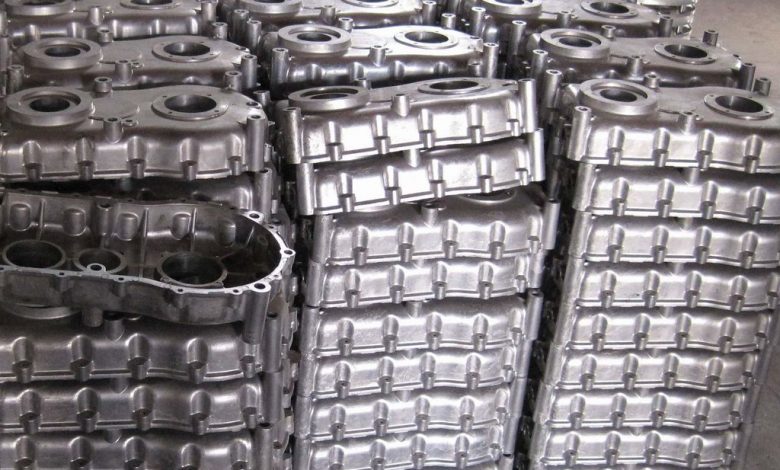Original Equipment Manufacturer Die Casting Parts: How to Choose the Right One

OEM die casting parts can bring a wealth of opportunities to your business, but you may not know how to maximize them. However, manufacturers are becoming increasingly interested in them, so you cannot ignore them.
“OEM” stands for Original Equipment Manufacturer. It is a term used to identify a business that produces and sells its products directly to other businesses rather than end consumers. Usually, such businesses produce components or subassemblies that are cheaper when produced in large quantities as compared to purchasing them from third-party suppliers.
As a result, an OEM manufacturer enables businesses by offering customized components that are more cost effective than purchasing them from a third party supplier. This blog will discuss the different types of OEM die casting parts and their benefits so that you can choose the right one for your business.
What is OEM Die Casting?
Original Equipment Manufacturer (OEM) die casting is a die casting method that helps businesses save money by decreasing production costs and avoiding unnecessary capital expenditures. A client is the company that wants to sell its own brand of oem die casting parts product, and a contractor is the manufacturer who can provide the manufacturing technology.
The oem die casting parts product’s planning and design are formulated by the company that placed the order. The ordering company provides the manufacturer with the required specifications for the product, after which the manufacturer produces the product in accordance with those specifications. The final product is then sold by the ordering company under its own brand name.
Additionally, there are scenarios in which the ordering company consigns all of the products it sells as OEM, and there are also scenarios in which the ordering company produces some of its own products in addition to consigning all of the products it sells as OEM. It is possible for one company to be the source of the order or the consignee, but it is also possible for one company to get OEM supplies from many companies, or vice versa, give OEM supplies to multiple companies.
Different Types of OEM Die Casting Parts
Traditional applications of die casting, which allows for the mass production of nonferrous metals like zinc, aluminum, and magnesium, have been in the production of automotive components. A disadvantage in the past, lack of strength, has been overcome in recent years thanks to advances in technology, and the product’s popularity has since expanded into new applications like building supplies, telecom devices, and industrial tools.
Automobile components
- Transmissions
- Gear boxes
- Engine components (covers, cylinders, cranks, oil pans, transmission cases, valve bodies, transfer cases)
Products that aren’t automobiles
- Office supplies (computers, tablets, printers, photocopiers, fax machines)
- toys (miniature vehicles)
- home appliances (refrigerators, washers, vacuum cleaners, DVD players, high-definition headphones, sewing machines)
- more (cameras, jewelry, fishing tackle)
How to Choose the Right OEM Die Casting Parts Manufacturer?
It is important to give a great deal of thought to the process of choosing a manufacturer for your oem die casting parts ; you shouldn’t simply go with a company that is easily accessible or that offers their manufacturing service quickly. There are a lot of oem die casting parts firms out there, and any one of them might make oem die casting parts for your company. However, you need to take these steps before deciding who will be your oem die casting parts partner.
Visit Original Equipment Manufacturer’s Facility
There are many trading companies out there that pose as factories, so it’s important to conduct an on-site visit or send a representative auditor before settling on an OEM die casting parts manufacturer. It is common knowledge that there are occasions when a company’s trading operations fail. A tour of the facilities will allow you to observe the equipment, the workshop, and the personnel. If not, you could be setting yourself up for deception.
Inquire about the annual output and references of the OEM
It is essential to have this level of knowledge about the die casting manufacturer. A convenient time to inquire about annual output is during a face-to-face meeting with a prospective die casting company. In addition, their largest clients account for the vast majority of the company’s revenue.
Be sure to double-check that the factory and the necessary machinery are ready for production.
In order to determine whether the oem die casting parts manufacturer can move on to the next step in a consistent way, one of the most important factors to consider is the complete status of the production workplace and the equipment.
Check to see if the manufacturer has a certificate
In order to guarantee the quality of their oem die casting parts product, an ISO-certified oem die casting parts factory is required. You have the option of requesting or demanding that the casting manufacturer provide you with an official copy.
Learn the terms of payment
When finalizing a deal with a reliable oem die casting parts manufacturer, it’s crucial to discuss payment terms. Payment in advance is typically required before starting a new business relationship with a manufacturer. Knowing this is crucial because inventory is one of the most expensive parts of running a business. Having open and honest communication with your oem die casting parts company from the start will help you save money.
Summing up
It’s a necessary but unusual expense of starting a business to seek suppliers and manufacturers. It’s hardly a walk in the park to figure out which manufacturers will best serve the needs of your business. However, if you’re willing to put in a little extra time and effort, you can find the ideal business partner for your business. Even if a colleague recommends an OEM company, you must take some necessary steps before deciding on a partnership. People who are starting a business can benefit greatly from OEM, so it’s imperative to think carefully before committing so your business won’t fail.




